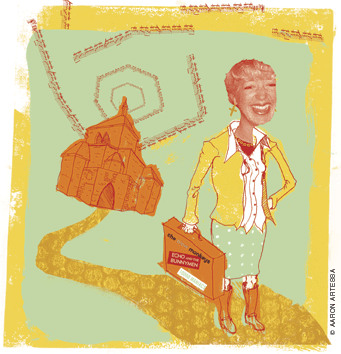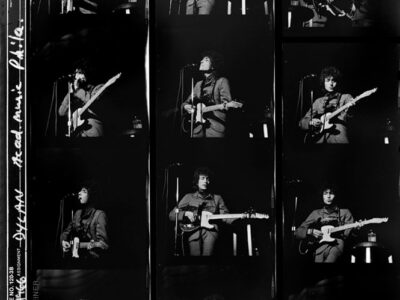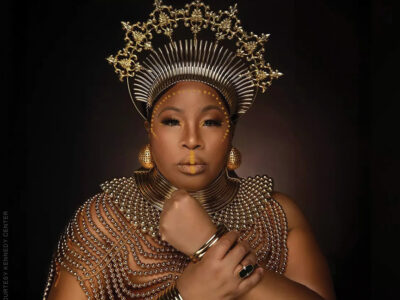
How being a roadie prepares you for life.
By Nancy Davis Kho | When I was studying for my graduate degree after Penn, I participated in an intensive seminar class on consumer marketing. As part of the program, a senior executive from Procter & Gamble led a class on interviewing skills. When he asked for a volunteer whom he could “interview” in front of the class and then critique, I shot my hand into the air, hoping to impress a potential employer.
I was proud of my Wharton undergraduate education and the door it had opened for me to get my first post-college job, in Germany, which led in turn to my acceptance into this graduate program. I handed over the resume I’d brought with me, and he glanced at it briefly while the class of 30 students looked on.
The executive threw a few softball questions to start. Thanks to Wharton’s career resource center, I was one cool interviewee—that is, until he got to the “Other Activities” section of my resume. “Penn Union Council,” said the exec. “Sounds important! Tell me all about it.”
Penn Union Council sure did sound important, but its name was somewhat misleading. Back in the mid-eighties when I attended Penn, the PUC was the student organization where kids who liked music provided free labor for the bands that played on campus. The formula was that, in exchange for a long day’s work as a roadie, we got free seats in the orchestra pit and a T-shirt, for bands like Echo and the Bunnymen, Fishbone, and 10,000 Maniacs.
I had always been a music fan, but I had grown up in upstate New York, and few bands made the trek across the tundra to play live in Rochester. Nothing prepared me for the richness of the music scene I found in Philadelphia when I arrived for my freshman year. Rather than leaning over store record-bins and looking for new releases by the artists I loved, I was soon leaning over stage aprons and seeing the acts in person at the Chestnut Cabaret, Tower Theater, or Revival. When I learned that there was a campus group that would let me get even closer to the bands playing at Irvine Auditorium, I joined immediately.
The PUC operated pretty simply. A meeting would be advertised in The Daily Pennsylvanian a few weeks before a scheduled show, and anyone interested in working could show up. The club president and vice president assigned a student crew for the show, based on some magical formula never explained but which, I firmly believed, hinged on one’s ability to communicate both familiarity with the musician in question and an ability to be cool, using only body language.
On the day of the show, the chosen PUC crew would show up at Irvine at the crack of dawn, usually as a long black equipment truck and a tour bus or two were pulling up to the curb. From that point until the band departed after the show, anything went. The club president funneled orders from the band manager, band members, and anyone else with a backstage pass to us, the students, and we asked only, “How high?” Duties ranged from lugging amps to duct-taping wires to the stage to preparing meals that strictly adhered to the musician’s contract rider. Once my job was to take a Scottish roadie to the Penn bookstore and help choose a birthday card for his sister.
There was an occasional sighting of the musicians we were serving, but we were so busy carrying, cooking, taping, and running that it scarcely mattered. When the show ended, we did it all again, in reverse order, getting home in the wee hours and falling into exhausted sleep with the music still ringing in our ears.
The best part of being in the PUC came just before the show started, when our setup was complete. We’d mill about backstage, listening to the roar of our classmates who had paid top dollar for their seats as they shouted out the names of band members who had just thanked us for dinner (if we were lucky). Then we’d file en masse into our places in the orchestra pit, inches away from the musicians we worshipped. The feeling of being “part of the band”—if only the sweaty, physical-laboring part—was hard to beat.
So on this day in my interviewing seminar, how did I apply my Wharton confidence to the question at hand? “The Penn Union Council,” I said, “was a student organization where I learned not to be afraid of hard work.” The 18-hour workdays I put in for concerts were not significantly different from those I spent working for a startup IT consultancy after graduating from Penn, especially on days when we were trying to impress an important new client. As at the PUC, I was expected to handle any task thrown at me, with very little advance instruction. Whether I was cooking vegetarian goulash for opening act Tracy Chapman or pulling together a competitive analysis for a new market sector, I just had to figure it out.
“The PUC also taught me important negotiation skills,” I continued. On the night New Order played Irvine, the band and their roadies had a hankering to go dancing after the show, and wanted someone to be their guide out on the town. The PUC leadership pushed me to the fore. (OK, maybe I jumped.) A guitarist suggested I drive with him while the others followed in taxis, and the aforementioned Scottish roadie whispered urgently into my ear, “Don’t do it! Bad man! Bad man!” I counterproposed to the musician that instead, I would provide him recommendations and directions to nearby clubs and meet the group later. Then I went home to bed.
“Finally, the PUC taught me to recognize individual talents,” I concluded. Whether it was the kind of aptitude that enabled a classmate from the Engineering School to figure out complicated electrical hookups for the band equipment, or the musical genius of Jimmy Cliff bringing the auditorium to its feet during “The Harder They Come,” the PUC experience was a way to recognize that a successful team requires a mix of abilities and experiences, and a common vision of success.
Age hasn’t cured me of my love of live music, but—despite not being offered the fake job during the faux interview—it has brought me a level of professional success that lets me buy concert tickets on a whim instead of bartering with hard labor. But I’d put the sweat equity in, a hundred times over, for the thrill that came with sticking on a PUC-issued backstage pass and striding into the darkness of Irvine Auditorium.
Nancy Davis Kho W’88 is the director of business development for Global Reports (www.global-reports.com) and a freelance writer whose work has appeared in the San Francisco Chronicle, EContent Magazine, CommonSenseMedia.org, and Skirt!Magazine, among other publications.




